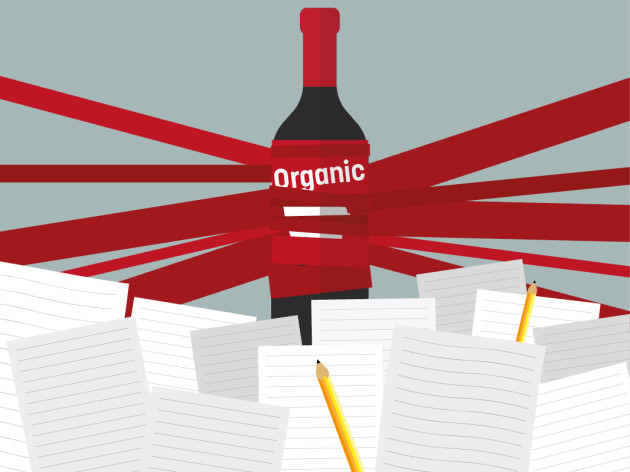
Unsustainable future
Following the successful lobbying of government to ditch the much-derided and unnecessary VI-1 forms for wine imports, trade voices are gearing up for another battle, this time concerning organic wines.
As it currently stands, UK divergence from EU rules on 1 January 2022 over imports of organic goods will see a certificate of organic importation implemented on consignments of organic wines entering the UK, which are to be lumped in with all organic produce. This will include a cost on each shipment, along with additional related paperwork, plus a further requirement to store organic wines away from non-organic wines to prevent – somewhat ridiculously for a totally sealed product – cross- contamination.
“Each consignment typically will have a £75 certificate of inspection levied on it because it is organic,” says Hal Wilson, MD of Cambridge Wine Merchants and one of the vocal members
of the trade that helped push government to ditch VI-1s.
“Wine has to be presented at the Port Health Authority. This is DEFRA saying if you want to import organic wine or produce it’s not going to accept that it’s got [for example] Demeter or Biodyvin certification on the label, it will need to be inspected every time.”
Wilson calculates that this would add anything from 10p up to £1 to the final price of an organic bottle on shelf, with smaller imports and importers particularly hard hit.
“A pallet might be 10p a bottle, but if you’re adding five cases on the back of a non-organic pallet of wines, it will cost £75 for those 60 bottles.”
For merchants such as Cambridge, where more than 15% (and growing) of the portfolio is certified organic, Wilson says “we will have to assess the impact on demand”. He adds that the additional cost and potential for delays to speedy import will inevitably pass on price rises to consumers.
“People will buy less or [importers] will ask organic producers to take certification off the label – we’ve COP26 coming up, but this seems to be penalising organic producers, who tend to be massively into sustainable agriculture,” says Wilson.
Daniel Lambert, of the eponymous import company, is another VI-1 veteran gearing up to raise awareness of this anomaly. He calls it out as a hasty “cut-and-paste job from EU import requirements, like VI-1”, that hasn’t been thought through.
“Certificate of organic importation is from the producer, they have to produce that, from I what understand, but that will add cost. It’s unnecessary paperwork. If
[a wine] is already confirmed organic, why do you need another certificate to confirm organic? It’s red tape they could easily remove [as] consumers in the UK will trust if it’s organic EU, or organic Australian, produce,” says Lambert.
↓
Different rules
On the need for separate storage of organic wines, Lambert argues that this reveals just how little thought has been put into the proposed roll-over of the certificate of importation.
“We are a registered organic importer (it cost us £750, but
we bit the bullet), but the nuts and bolts are that all importers of organic goods are being tarred with the same brush, and government needs to legislate to have different rules for different products,” says Lambert.
“And being told you have to segment all organic importation away from non-organic because of cross-contamination is absurd – obviously wine, which is sealed and in a box, isn’t going to be exposed to any contamination, so having the same rules that would apply to something like cheese or meat makes no sense.”
This oversight regarding organic certification came via the same legislation that proposed VI-1 forms, and there is hope that, once government attention can be drawn to its unnecessary nature, adding more paperwork and cost, the need for it will be dropped. Unless that happens, though, this could become another headache for the trade and dent the progress made with consumer uptake on organic wines.
Keywords:
- wine
- UK
- EU
- Organic
- Wines
- it’s
- Government
- need
- says
- MD
- organic wines
- cost
- Defra
- VI
- importation
- organic importation
- non organic
- cross contamination
- organic producers
- it’s red tape
- confirm organic it’s
- it’s unnecessary paperwork
- eu import requirements
- cost it’s unnecessary




